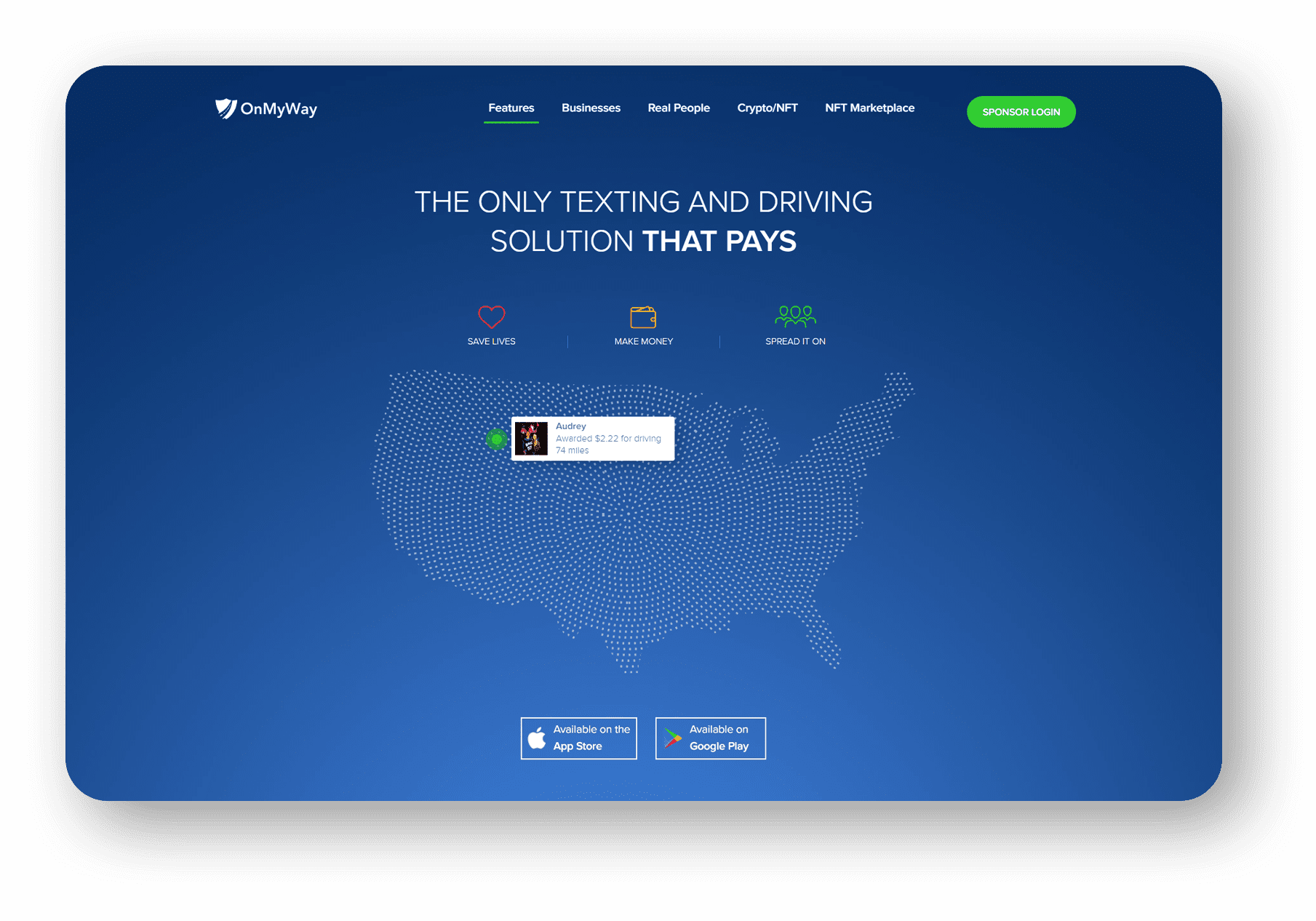
Any anthology series is bound to be hit-and-miss, and Black Mirror season 6 reaches its low point – and possibly the low point of the entire series – with its fourth episode, “Mazey Day.” “Mazey Day” starts out as a cat-and-mouse caper in which the cat is a cash-strapped paparazzo in need of a big scoop and the mouse is a celebrity who went off the grid following a hit-and-run incident. Throughout most of the episode, “Mazey Day” keeps viewers interested enough in the mystery of who Mazey ran over and what will happen when the paparazzi catch up with her. But in its final act, it takes a bizarre left turn that feels really out of place in a Black Mirror episode.
Compared to the other entries in season 6, “Mazey Day” is by far the most half-baked. It’s as if series creator Charlie Brooker had a semblance of a concept about paparazzi and also wanted to do something with werewolves, and decided to just cram the two ideas together. Whereas “Loch Henry” and “Beyond the Sea” had plenty of room to breathe, “Mazey Day” races through its plot without bothering to give its characters any depth or personality. Zazie Beetz is terrific as usual in the role of the sympathetic paparazzo, but the episode gives her a razor-thin motivation: she needs money. She grapples with the morality of her sleazy vocation, but it’s all too brief. Mazey Day herself, a troubled Hollywood starlet played by Clara Rugaard, is even more one-dimensional. She’s seen running someone over with her car, then going into hiding and having a couple of bad dreams about the hit-and-run to show she hasn’t forgotten about it, and then, all of a sudden, she’s turning into a werewolf.
The quality drops markedly beyond that, with “Mazey Day” featuring a conflicted paparazzi (Zazie Beetz) who begins pursuing a famous actress and bites off more than she bargained for; “Loch Henry,” in which a pair of young aspiring filmmakers (Samuel Blenkin and Myha’la Herrold) return to the former’s Scottish home town, where she learns of a sordid past that propels them into the world of true crime; and “Demon 79,” easily the weirdest and most polarizing of the bunch, in which a quiet sales clerk (Anjana Vasan) is the unlikely conduit chosen by a bureaucratic demon (Paapa Essiedu) to save the world from annihilation.
As usual, producer Charlie Brooker handles the writing chores (teaming with Bisha K Ali on “Demon 79”), and the episodes are generally both playful and provocative, including the aforementioned poke at the platform that feeds it.
Still, “Black Mirror” has distinguished itself as, at its best, “The Twilight Zone” for our times, adept at tapping into the apprehensions associated with issues like social media, gaming and artificial intelligence, among other modern distractions and conveniences.
The new season strikes a few glancing blows on that front, but otherwise appears content to be creepy without being consistently distinctive in a way characteristic of its best installments.
Brooker remains an astute observer of the modern age, with a sharp ear for the current nexus of pop culture, politics and technology. But where “Black Mirror” once felt bracing and new, the latest season only occasionally rises to the level that would vault it to the top of one’s Streamberry – er, sorry, Netflix – watch list.
As befitting “Black Mirror’s” knack for fusing fact, fiction, present and future (see: the final mind-melting twist in “Joan is Awful,” which makes Christopher Nolan’s “Inception” look like an episode of “Peppa Pig”) the press junket for Season 6 was not unlike a press junket you could envision Streamberry organizing. A series of journalists from across the globe were summoned online into a maze-like series of virtual waiting rooms before being given mere minutes to bark out a few questions at the actors and then booted off.
Variety was allocated precisely four minutes to interview Salma Hayek Pinault and Annie Murphy (the stars of “Joan is Awful”), four minutes for Kate Mara and Josh Hartnett (who appear in Episode 3, “Beyond the Sea”) and a whopping five minutes for Zazie Beetz, Danny Ramirez and Clara Rugaard (Episode 4, “Mazey Day”).
Four minutes — or 240 seconds — is the kind of random fragment of time that makes you ponder the meaning of the universe itself. What can be achieved in four minutes? You can repeatedly ask a six-year-old to put on their shoes (without success). You can get halfway to orbit in a space shuttle. You can save the world, if you happen to be Madonna and Justin Timberlake.
“You can’t put the genie back in the bottle entirely, but I do think they’re useful tools for writers in the same way photoshop is a useful tool for illustrators and photographers and so on,” he continued. “So I don’t know. It’s above my pay grade to know how you regulate it, what sort of agreement there is. But I think it needs to be” – Brooker jokingly contorted his voice to imitate some kind of sci-fi overlord: “controoolled.”
So there you have it. Read on to find out what else Variety managed to pry out of some of the Season 6 cast members in the time it takes to soft-boil an egg.
Oh, and if we have inadvertently ended up in an episode of “Black Mirror,” can Streamberry please note we’d like to be played by AI-generated likenesses of Blake Lively, Anne Hathaway and Michelle Yeoh.
In “Beyond the Sea,” Josh Hartnett and Aaron Paul play a pair of 1960s astronauts in the middle of a six-year space mission. To keep sane, they can beam their conscious into lifelike replicasback on Earth. When murderous hippies kill Hartnett’s family and destroy his replica, the spaceman begins to break down. Out of sympathy — and self-preservation — Paul lends Hartnett his replica, but soon begins to suspect there may be something going on between his co-pilot and his wife (Kate Mara).
Any promise that “Mazey Day” might have had to be a decent episode of Black Mirror goes out the window when Mazey turns into a werewolf. The werewolf twist is completely out of the blue. Despite the lack of character development, it’s easy to go along with the story as the paparazzi follow Mazey to a celebrity wellness retreat, literally crawl through the dirt to sneak in (a great sight gag spoiled by on-the-nose dialogue pointing out the irony), and follow Mazey to her cabin. After that, all the episode needed was an exciting or terrifying payoff. However, when the clouds clear and a full moon shines through and Mazey starts to transform, this episode officially loses the plot. The werewolf transformation sequence includes some familiar framing as an homage to An American Werewolf in London, but the CGI has got nothing on Rick Baker’s Oscar-winning practical effects.
“Black Mirror” usually leans prescient in its storytelling, and “Joan Is Awful” arrives just as AI has become one of the hottest topics in Hollywood. (The episode was shot last fall, weeks before the launch of ChatGPT software.) It’s “so beyond relevant right now,” Murphy says, “and just the lack of control that people already have over their image and their story, it’s certainly not getting any better, and it’s getting in fact a lot worse at an exponential rate.” She hasn’t really thought about how AI could affect her on a personal or professional level, “but I think so much more could go wrong before that happens.”
A longtime “Black Mirror” fan, Murphy’s jaw “just kept dropping and dropping” until she got to a wild scene set at a church: “I was like, ‘If this isn’t the part for me, I don’t know what is.” At her wit’s end, Joan decides to create a bit of chaos that a big star like Hayek would never let go to air (and of course, it ends up playing to the entire globe) involving a cheerleader outfit, several burgers, a full bottle of laxative and a wedding. “It was so beautifully blasphemous and funny and over the top,” Murphy says.
The extreme situations in which “Black Mirror” characters find themselves are usually awful, outrageous and/or terrifying, and Brooker often taps into his comedy background (including writing for British late-night shows and sitcoms in the 2000s) for those gags. He refers to a tweet people often show him: “‘Black Mirror’ is written by one stoned British dude who sits around going, ‘What if your mum ran on batteries?’” “It’s not that far from the truth,” Brooker says, laughing. “Apart from the stoned bit. I can’t do that anymore.”
OVERVIEW
OnMyWay Is The #1 Distracted Driving Mobile App In The Nation!
OnMyWay, based in Charleston, SC, The Only Mobile App That Pays its Users Not to Text and Drive.
The #1 cause of death among young adults ages 16-27 is Car Accidents, with the majority related to Distracted Driving.
OnMyWay’s mission is to reverse this epidemic through positive rewards. Users get paid for every mile they do not text and drive and can refer their friends to get compensated for them as well.
The money earned can then be used for Cash Cards, Gift Cards, Travel Deals and Much, Much More….
The company also makes it a point to let users know that OnMyWay does NOT sell users data and only tracks them for purposes of providing a better experience while using the app.
The OnMyWay app is free to download and is currently available on both the App Store for iPhones and Google Play for Android @ OnMyWay; Drive Safe, Get Paid.
Download App Now – https://r.onmyway.com
Sponsors and advertisers can contact the company directly through their website @ www.onmyway.com











